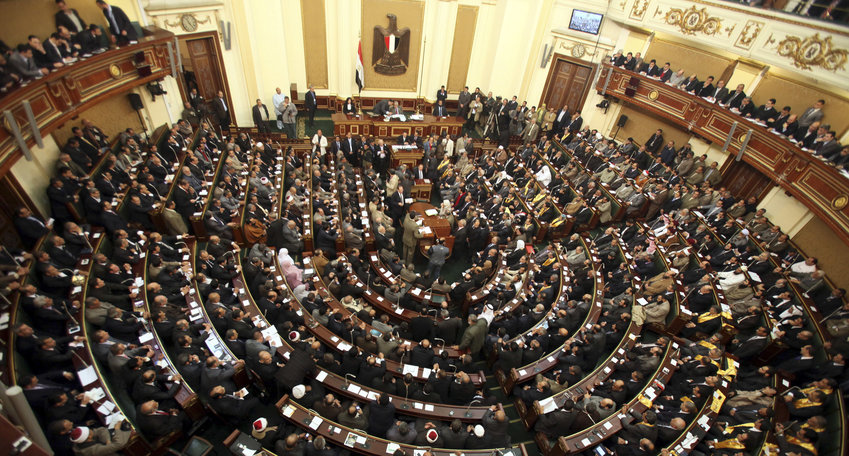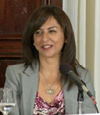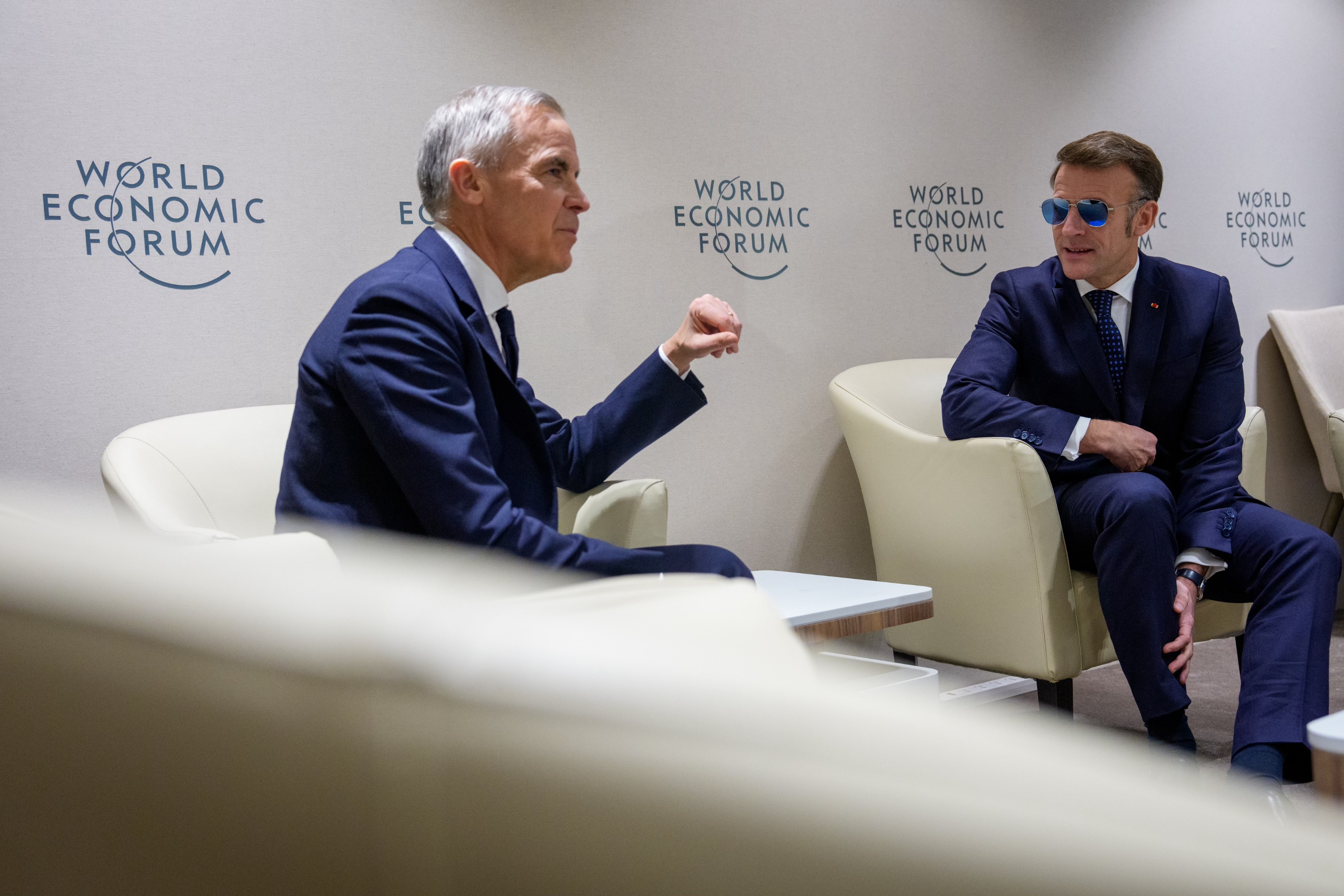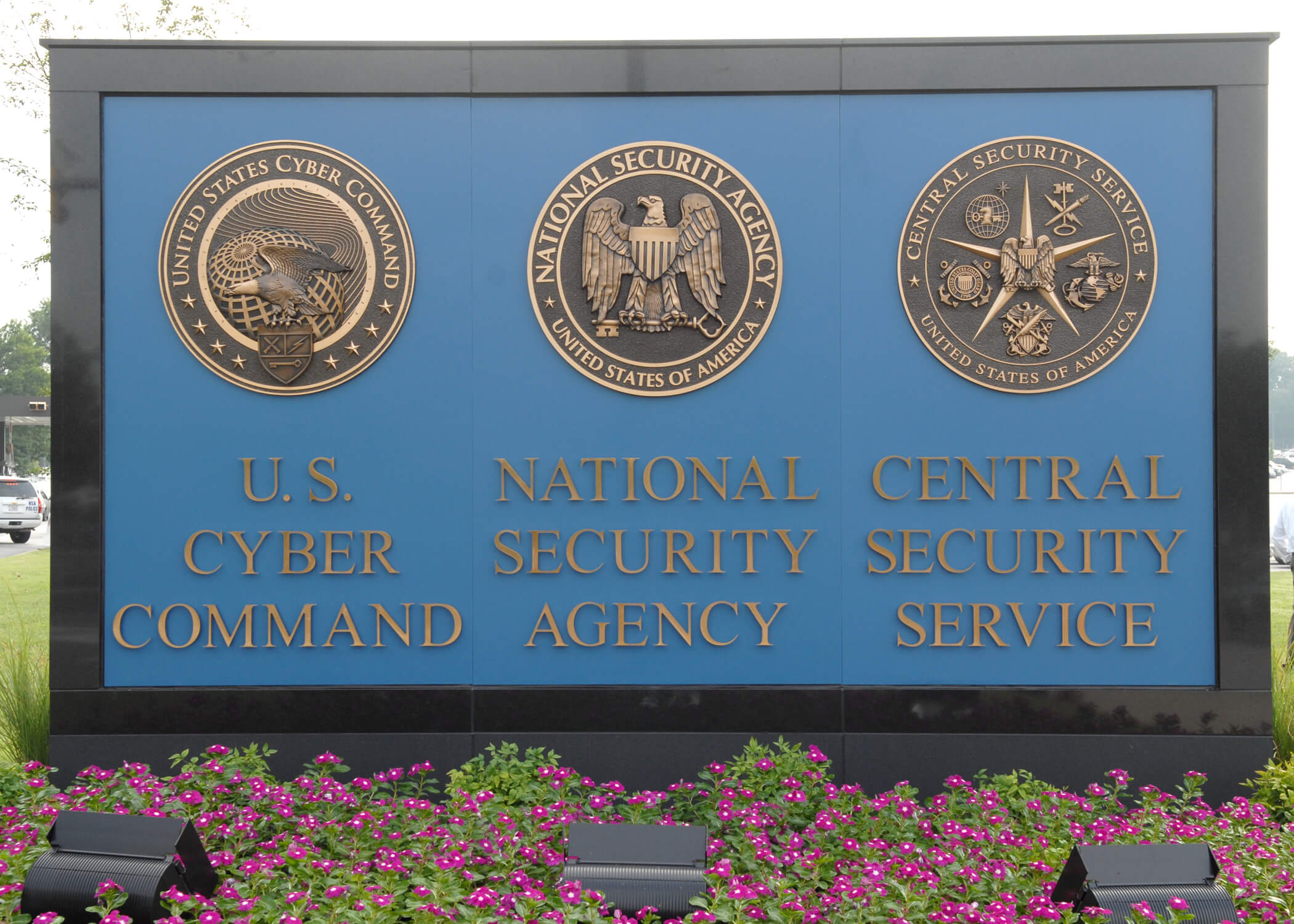Egypt Is Cracking Down on NGOs When It Needs Them Most
Egypt has never been a welcoming place for civil society groups, but the past several years have seen an unrelenting crackdown on non-governmental organizations. It began with the infamous December 2011 raids on foreign democracy-building organizations and has endured through successive regimes. And yesterday, Egypt once again upped the ante.

Egypt has never been a welcoming place for civil society groups, but the past several years have seen an unrelenting crackdown on non-governmental organizations. It began with the infamous December 2011 raids on foreign democracy-building organizations and has endured through successive regimes. And yesterday, Egypt once again upped the ante. New legislation to regulate NGOs was approved in parliament after being railroaded through the legislative process over the weekend; the draft was discussed in committee on Sunday, approved in principle on Monday, and voted on today. The law has raised an outcry across Egypt’s NGO community for its exceedingly restrictive language, severe legal penalties that would allow prison sentences of up to five years, and the sudden and undemocratic process that brought it before parliament. The new law would further curtail civil society at a moment of economic crisis, when a vibrant NGO landscape is most critical.
The timing is deliberate: the draft appeared just a week after the International Monetary Fund (IMF) announced its decision to disburse a $12.5 billion loan to Egypt. With the loan now safely squared away, the rest of the government (and the country) distracted by economic developments, and the added news of Donald Trump’s election monopolizing international media, the Egyptian government was well positioned to fast-track this legislation without a great deal of commotion or resistance from the international community or broader Egyptian public.
For its part, the Egyptian government has justified the need for the new law by saying it will close loopholes in existing regulations on NGOs, increasing transparency of funding that may be used to undermine the state and requiring NGOs to properly register with government ministries. Doing so, their argument goes, will close the door on a current trial against NGO workers and eliminate the need for legal action against others in the future. (Investigations related to the case began in 2011, and resulted in harsh sentences for 43 NGO workers, including one of the authors of this article. The investigations picked up steam again at the beginning of this year, with multiple human rights workers called in for questioning, prohibited from travel, and facing prosecution.)
The text of relevant articles belies their intent to control and restrict civil society, rather than merely regulate it.
In practice, the government’s argument holds little water. The text of relevant articles belies their intent to control and restrict civil society, rather than merely regulate it. Articles 70-77 of the legislation establish the creation of a regulatory body comprised of members of the General Intelligence service, as well as representatives from the Ministries of Defense, Interior, and Judiciary, among others. While this body’s mandate is ostensibly to ensure “oversight,” it merely adds new agencies to an already existing oversight body, with more opportunities to curtail NGOs’ work. This body would have the power to reject foreign funding, and other articles in the law allow the government to dissolve NGOs outright.
The argument that the law will bring the never-ending NGO trials to a conclusion is also dubious. Not only is there no reason to believe that the new law will halt the ongoing cases against NGO workers, in fact it will increase the penalties that NGO workers could face and the number of people who could be prosecuted. Articles 87 and 88 increase penalties for violations from fines to prison sentences, and expand criminal responsibility to include not only individuals, but the directors of organizations where they work, as well as any government official who authorized activity criminalized by the new law. Additionally, Article 86 provides that even harsher penalties enshrined elsewhere in the Penal Code and other legislation may be applicable—Article 78 of the penal code, for instance, allows for a sentence of up to life in prison.
Existing laws like Article 78 are a bleak illustration of why the law’s passage will not stop the assault on the NGO community. The Egyptian government already has legal authorities to crackdown on NGOs. Civil society leaders like Hossam Bahgat, Gamal Eid, and others are already being tried under Article 78, which criminalizes any individual receiving foreign funds to harm the “national interest.” The government has also clearly indicated its intent to continue the NGO case: the judiciary has danced around laws that should limit the appointments of judges investigating the case to six months, with a renewal up to one year. “If the government is satisfied with the investigations' results, this requirement is ignored,” explains Mohamed Zaree, the Director of the Egypt office for the Cairo Institute for Human Rights Studies. “The investigative judges in the foreign funding case have already overstepped their term limits. In fact, one of the prosecutors has been investigating the case since November 2014, in direct violation of the law.”
The government may see this as an opportune moment to rein in what they view as a thorny opposition, but in many ways the timing couldn’t be worse.
The government may see this as an opportune moment to rein in what they view as a thorny opposition, but in many ways the timing couldn’t be worse. Egypt’s faltering economy is in dire straits after nearly six years of political turmoil, changing regimes, bloated budgets, and declining revenues (partially due to plummeting tourism). Finalizing the IMF loan required subsidy cuts and devaluation of the Egyptian pound; on Thursday, November 3, the government removed pricing controls and allowed the pound to float freely. That night, as part of a plan to cut the subsidy budget by 15 percent, fuel prices increased by 40 percent. The country is now hanging on tight to a roller coaster of speculation and inflation. Though the IMF loan will shore up the markets’ confidence and stabilize currency fluctuation, the measures taken to secure the loan and the conditions required to maintain funding are likely to exacerbate inflation in the short term.
It is important to note that the new NGO law will affect all non-governmental organizations—including those that provide much-needed services to Egyptians and those away from the capital and the center of attention. Nearly 28 percent of the population lives below the global poverty line, according to the U.N. Development Programme. Many Egyptians find themselves struggling to survive and face worse times ahead. Egypt’s Fiscal Year 2017 budget failed to meet constitutionally-mandated minimum spending requirements on education and health, and the country plans to rely on military food handouts and meager social programs to compensate. The Takaful and Karama program, designed to provide income support to the country’s neediest, only targets a tiny fraction of those who will find themselves in precarious conditions.
A robust civil society is essential in this economic crisis. NGOs are needed to assess governmental policies, serve as watchdogs for corruption, propose alternative policy solutions, provide avenues for mediation between workers, unions, and governments, and to offer support to vulnerable populations at a moment when the government does not have the resources to do so. In a September statement on the NGO case, the European Union recognized the pivotal role of Egyptian civil society; it is important that they continue to apply pressure. As president-elect, Donald Trump has signaled unconditional support for his counterpart in Egypt, but it is ever more important that the United States emphasizes the importance of a robust civil society to the Egyptian president.
A key objective of the IMF’s loan, according to the agreement, is supporting policies that “aim to boost growth and create jobs while protecting vulnerable groups.” Given the critical role that civil society plays in protecting vulnerable groups and the IMF’s declared commitment to transparency in working with civil society, it will be key that the IMF raise this point as it reviews progress toward inclusive growth. While the current conditions on the loan do not specifically reference civil society, such pressure would not be unprecedented—indeed the IMF has included anticorruption reform as a key priority in delivery of loans to Ukraine.
Time is of the essence. The assault on Egypt’s civil society has endured for years, but recent developments have accelerated the pace. At a critical moment for millions of Egyptian citizens, and at a time when the whole world is eagerly watching Egypt’s economic progress, the international community cannot afford to allow civil society to erode when Egypt needs it most.






